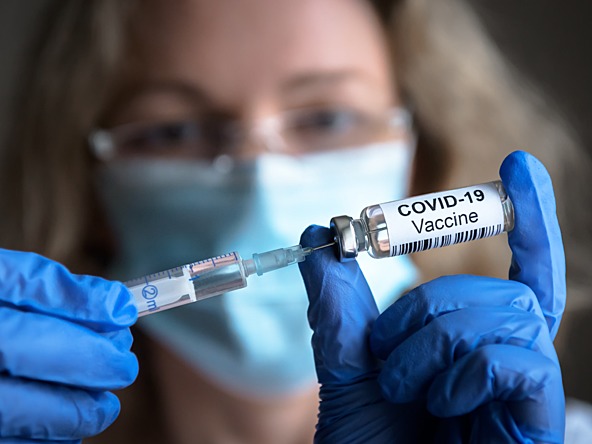Ipsos Covid study highlights the vital role of social research

The adaptability of large-scale research infrastructure and appreciating the value that public policy research can contribute to society at large are two of the main takeaways from Ipsos’ much-lauded Covid-19 surveillance study, according to UK chief executive Kelly Beaver.
The Real-time Assessment of Community Transmission (REACT) project is being carried out on behalf of the Department of Health and Social Care in partnership with Imperial College London. It received a highly commended nomination in the 2021 MRS Awards. This was due to the compelling way in which it contributed to the public health response to the pandemic, including monitoring the effectiveness of the vaccination programme.
Beaver references the innovative nature of the study and how it integrated randomised sampling from the GP registrar and push-to-web methodology (with telephone option), followed by in-home self PCR testing and online survey – all completed to extremely high scientific standards.
“We were looking for something that was timely and efficient in order to get people signed up quickly rather than waiting for a postal return or [employing] costly telephone or face-to-face recruitment – we managed to reach all individuals registered with a GP in England”, she explains. The challenges of setting up such a ground-breaking piece of research should not be underestimated: as Beaver points out, there was virtually no infrastructure in place at the time.
“Back in April 2020, when the REACT study was being established, there were limited available laboratory facilities in the UK to conduct PCR testing, in fact there was also a shortage of throat/nose swabs; the UK was still building its ability to do testing at scale, let alone conduct a surveillance study.”
New logistical systems put in place
Once individuals self-swabbed their samples needed to be transported intact from their homes to the laboratory for them to be processed. The nature of the swab utilised meant that they needed to be transported at a constant temperature of between two and eight degrees Celsius. Ipsos, therefore, had to establish a low temperature-controlled supply arrangement known as a cold chain. “Normally, this kind of thing would be done from hospitals, where there would be a bulk transit of the medical samples, but we had to set up a cold chain to collect 20,000 completed tests a day from homes in every part of England”, notes Beaver.
“We used a system of couriers that we brought together to collaborate on the project and there was a significant investment in fridges, freezers, cold chain boxes and industry-leading real-time monitors of the transportation temperature.” Even more remarkably, all of this was set up over a period of just four weeks – an achievement that took its toll on the team, as Beaver elaborates. “It was a period of very little sleep, very few breaks at all, they hardly had any time to eat.”
In fact, she says her one regret about the mammoth project was not being able to give the teams involved enough respite. “I think when you're running a programme like this, which is so full-on, you think (even hope) this pandemic will end soon and the need for real-time surveillance at scale will diminish, so you don't need to put in place a longer-term staffing strategy because we can last a few more months.
“But it’s been nearly two years now and if I had known how long it was going to last, I would have insisted on setting up dual teams and shadow teams earlier just to give them [the core personnel] a break.”
Impact on government policy
The outcome, however, was certainly worth the effort given how well received the project was – there is video footage showing the likes of NHS Test and Trace head Dr Jennifer Harries and the government’s chief scientific adviser Patrick Vallance talking animatedly about the hugely positive impact of REACT on policy-making. There were also much appreciated letters of thanks from then-Health Secretary Matt Hancock to the whole team for the personal sacrifices they made to deliver much needed evidence for decision-making at a time of crisis.
Beaver outlines some of the key data points that impacted on government decisions: “REACT was one of the first studies to identify the rise in positive cases in September 2020 which was when the government felt it was necessary to bring in the rule of six. Similarly, the regional differences in the data were useful in supporting the tier approach implemented in October 2020. The study has also provided significant learning on vaccine effectiveness and identification of variants and their spread in the community, as our samples are genetically sequenced”.
On a personal level, the Ipsos UK CEO recalls how fascinated she was by the information being collected. “The samples allowed me to see in very intricate detail what was happening at a localised, regional level across England in real time – when you saw that feeding into what they were saying in the ministerial briefings, you really felt part of something. And of course, with so much misinformation, having numbers that you could trust was absolutely vital”.
Her sense of pride in the project is palpable. “This is without doubt one of the best projects we have ever run in our entire 55 years of existence, and I say that working for one of the largest companies of its kind in the UK, which runs thousands of projects each year. It was almost like a wartime spirit, with people doing their part for the nation – it’s the project that I am undoubtedly the proudest of.”
Appreciating the value of evidence-based research
Putting the project into a wider context, Beaver says she believes the REACT study accentuates just how essential it is for insight companies to have a good infrastructure in place. “Don’t underestimate the importance of having a group of clever people who know how to do stuff with a lot of great technology behind them – and then having the capacity to innovate and pivot that infrastructure when it is needed most.”
As a board member of the Campaign for Social Science, Beaver is an avowed advocate of the value of evidence-based public affairs research and encourages other companies in the field to take pride in their own efforts. “There are sometimes special moments in a career in the world of insight where you can see much more clearly and undeniably the value of what your work contributes to society.
“It probably doesn’t happen frequently enough, but when it does you really need to shout about it and showcase the value of that kind of work to your teams and the industry. It is something we should all be proud of.”

We hope you enjoyed this article.
Research Live is published by MRS.
The Market Research Society (MRS) exists to promote and protect the research sector, showcasing how research delivers impact for businesses and government.
Members of MRS enjoy many benefits including tailoured policy guidance, discounts on training and conferences, and access to member-only content.
For example, there's an archive of winning case studies from over a decade of MRS Awards.
Find out more about the benefits of joining MRS here.














0 Comments